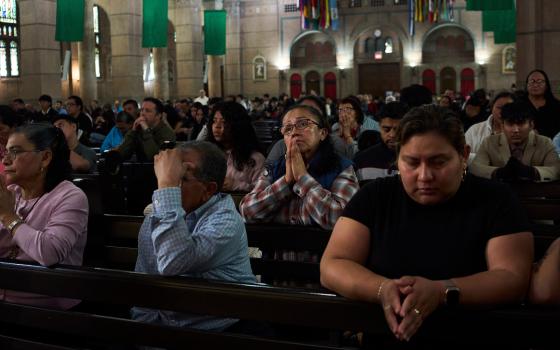
Commentary
In the spring of 2009, President Obama nominated Kansas Gov. Kathleen Sebelius to lead the Department of Health and Human Services. Some conservative Catholics objected to the nomination because of Sebelius’ pro-choice stance on abortion, but many of us defended her, noting Sebelius’ successful tenure as governor of Kansas, and arguing that her position on abortion, whether we agreed with it or not, did not disqualify her from public office.
Later that same spring, controversy erupted within the Catholic church when the University of Notre Dame in Indiana announced it was awarding an honorary degree to Obama. A former U.S. ambassador to the Vatican, Professor Mary Ann Glendon, declined to receive Notre Dame’s Laetare Medal, citing the controversy. In her stead, Judge John Noonan, a Reagan appointee, delivered the Laetare address, in which he commented on the controversy and Glendon’s absence, saying, “One friend is not here today, whose absence I regret. By a lonely, courageous and conscientious choice she declined the honor she deserved. I respect her decision. At the same time, I am here to confirm that all consciences are not the same, that we can recognize great goodness in our nation’s president without defending all of his multitudinous decisions, and that we can rejoice on this wholly happy occasion.”
Today, that nomination and that speech are set on a potential collision course. On Aug. 1, Secretary Sebelius is set to release a new rule that will mandate certain medical procedures that must be covered by new insurance policies offered under the health care reform law. Existing policies will be “grandfathered” but if they undergo substantial changes, they too will have to abide by the new mandates.
Last week, the Institute of Medicine released its recommendations for procedures that should be mandated. These recommendations go a long way toward righting the disparities in coverage for women that have been long lamented. Some of the recommended procedures are both noncontroversial and will improve women’s health, such as a test for the HPV virus that is linked to cervical cancer. Other recommendations, however, are controversial, especially those that relate to sterilization and abortifacients.
For Catholics, abortion is not health care. We Catholics know something about the practice of health care because of the many hospitals we run throughout the country. We know that abortion is not like the other procedures you see going on in any hospital, that it is not designed to save a life but to extinguish one. Our commitment to human dignity, a commitment that leads us to defend the rights of immigrants and the value of social programs that help the poor and the vulnerable, also requires that we seek to defend the unborn.
The Catholic church has also long opposed artifical means of birth control. This is a stance with which many of our fellow Americans, and many fellow Catholics, disagree. The church has not tried to force others to adopt our position on birth control through legal means, but it has asked that it not be coerced into providing birth control at its hospitals or through insurance policies for its employees.
The issue facing Sebelius is not contraception. The issue is conscience protection. The right of an American citizen to receive birth control or to obtain Plan B does not trump the right of a doctor to decline to participate in procuring an abortion. Nor does it trump the right of a citizen to decline to purchase a policy that pays for procedures they find morally repugnant. You do not have to share that moral repugnance to share the concern that violating the conscience of others runs against the entire spirit -- and in the case of Catholic church ministries, against the very letter -- of the First Amendment.
Whatever procedures are mandated by the new rules, those that are morally controversial should include strong exceptions for religious organizations and for citizens with moral objections to those procedures. Respecting and protecting differences of conscience only strengthens American health care. Such respect, moreover, broadens support for the administration's vision and leadership
“I am here to confirm that all consciences are not the same,” Noonan said. There is nothing liberal about adopting a rule that ignores the fact that all consciences are not the same. Those of us who supported Sebelius’ nomination argued forcefully that she should not be penalized because her conscience reached different conclusions on contentious issues from those reached by the leaders of the Catholic church. But it would be a tragic irony if, in adopting the new rules, Sebelius declined to afford to Catholic church organizations the same conscience rights we invoked when defending her nomination. Those of us who joined “Catholics for Sebelius” did not do so to see our conscience rights eviscerated.
[Schneck is director of the Institute for Policy Research & Catholic Studies at The Catholic University of America in Washington.]
--------------------------------
Editor's Note: Related stories on NCRonline.org
- Religious groups irked by contraception mandate
- The church's war on women's health and child welfare
- Conscience Regs Are Totally Inadequate
- Respecting, protecting differences of conscience strengthens health care



